
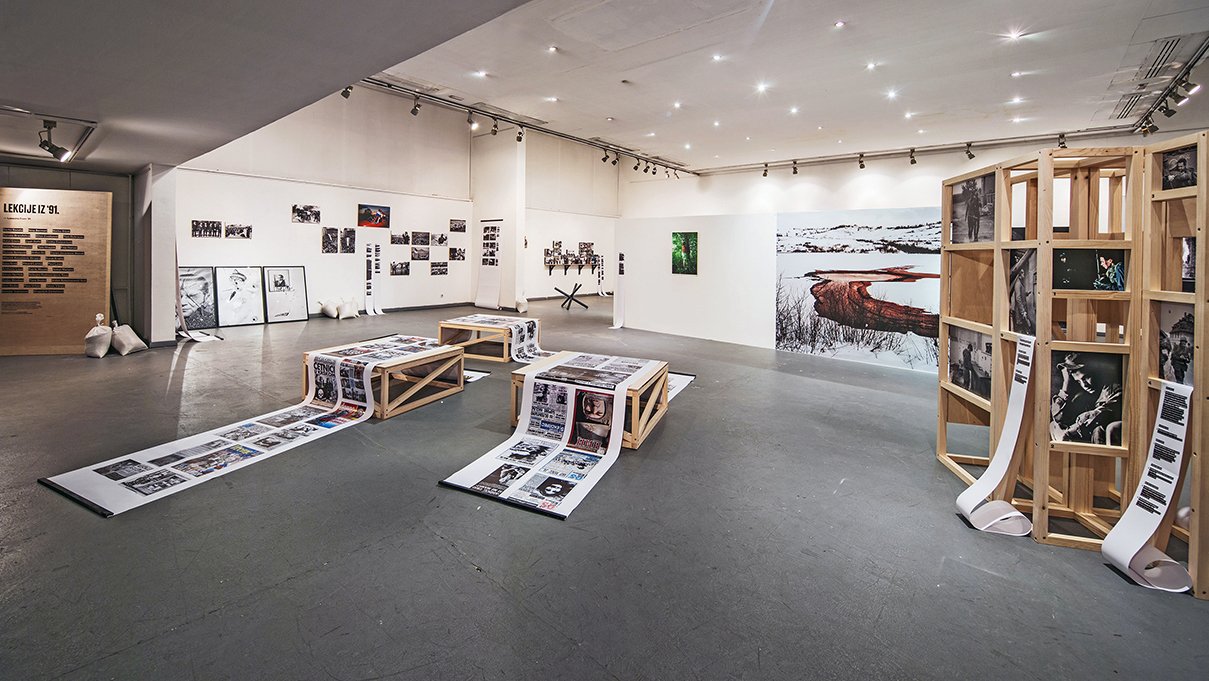
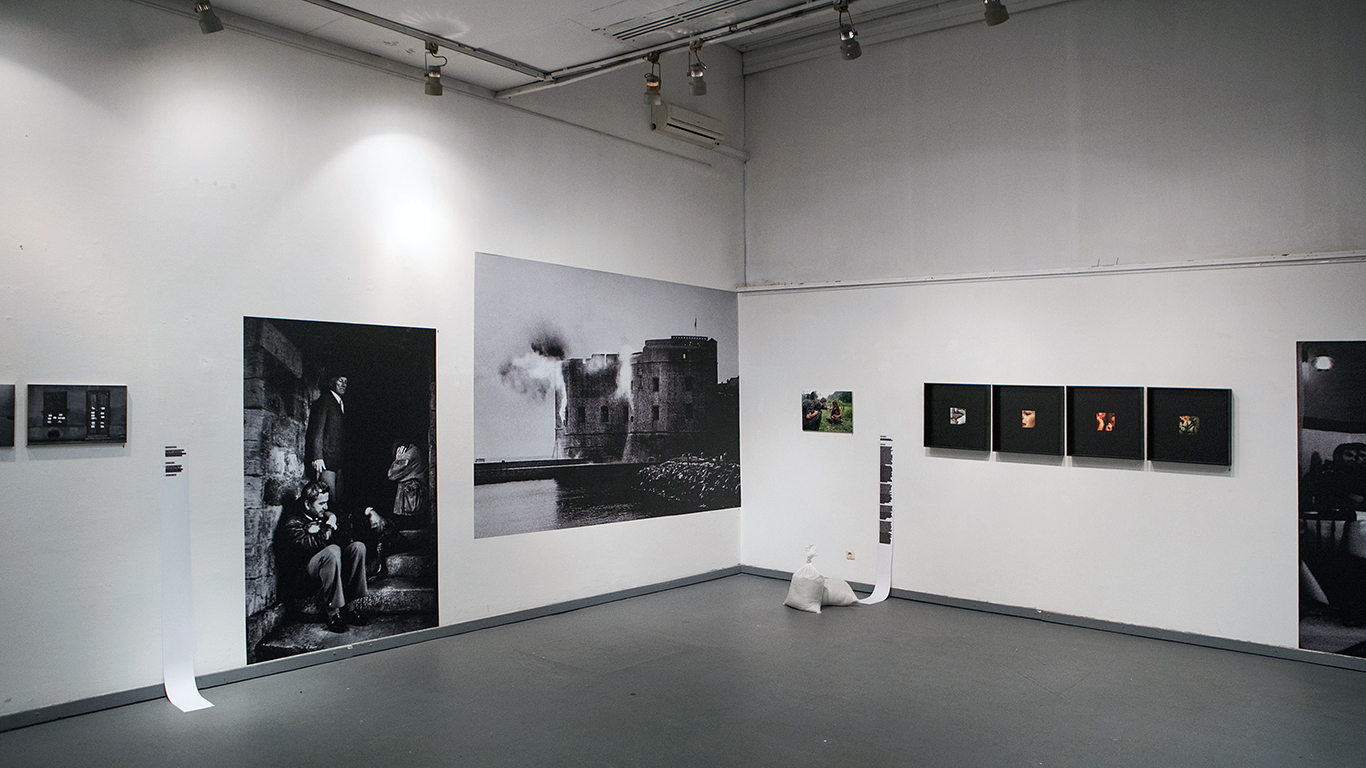
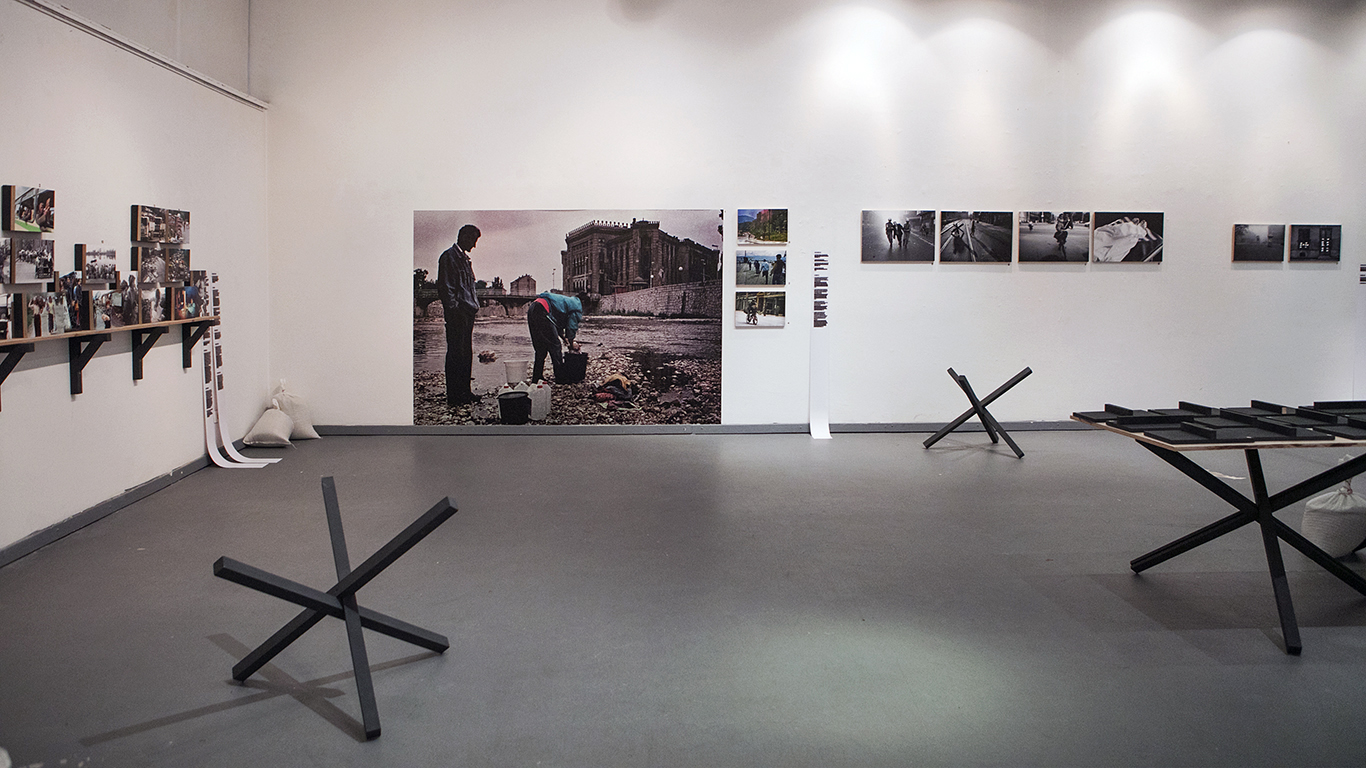
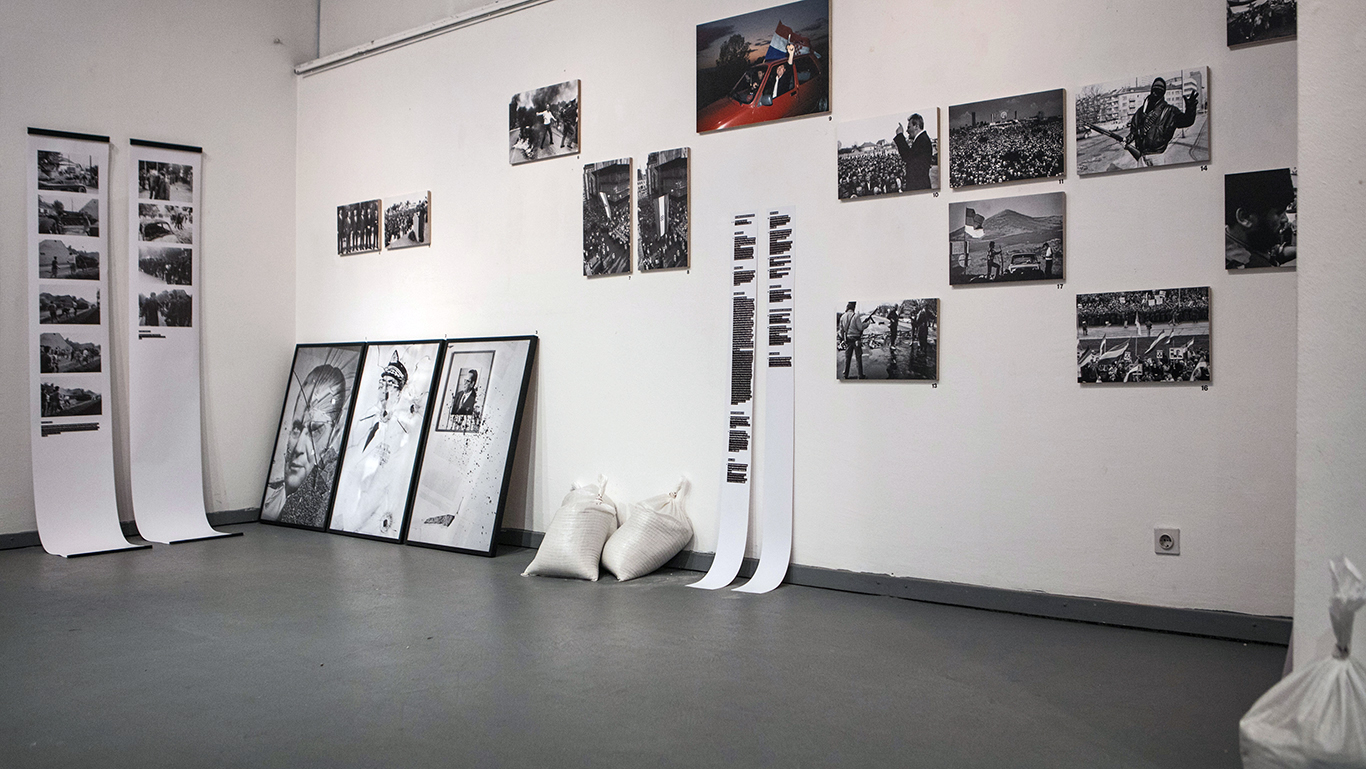
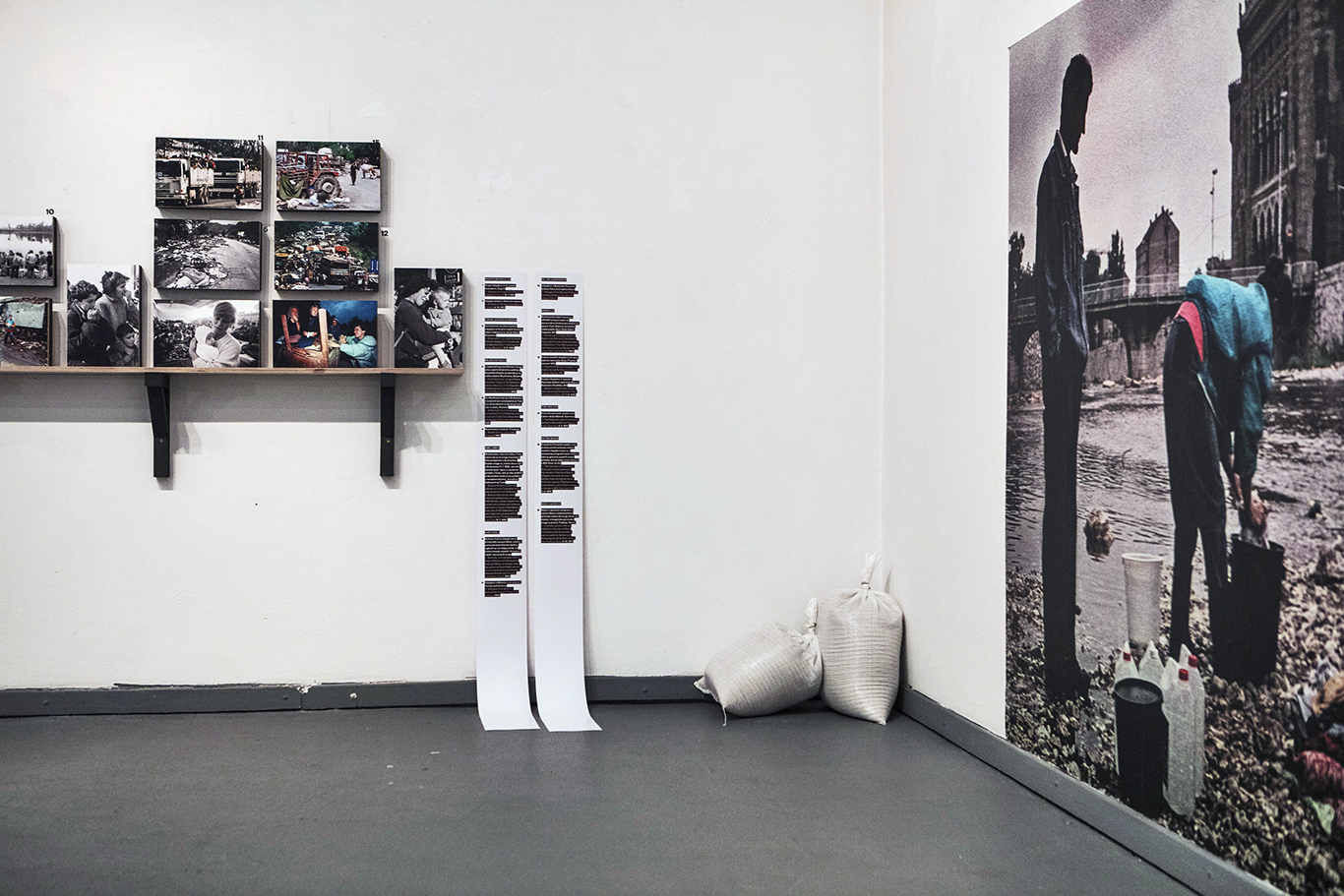
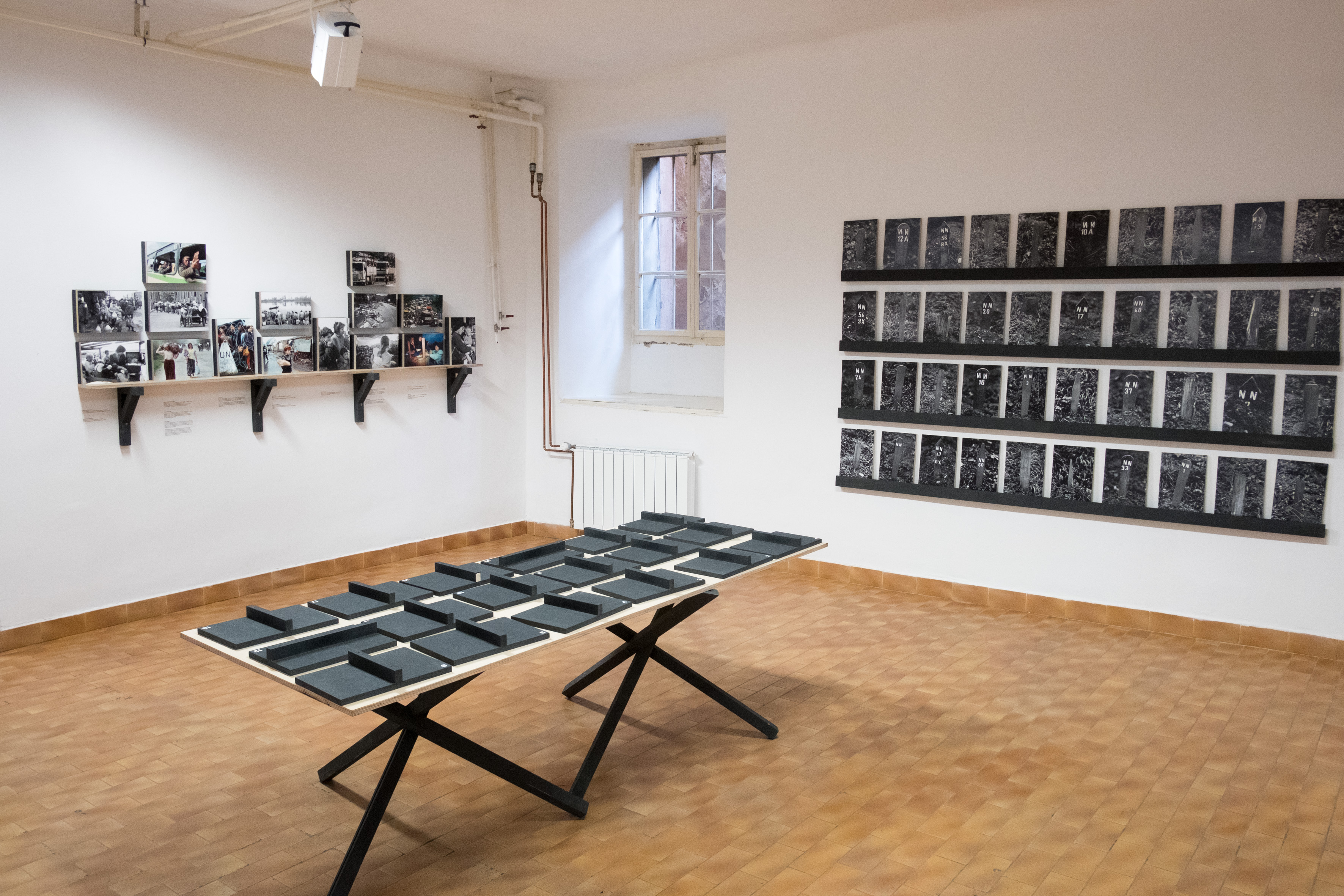
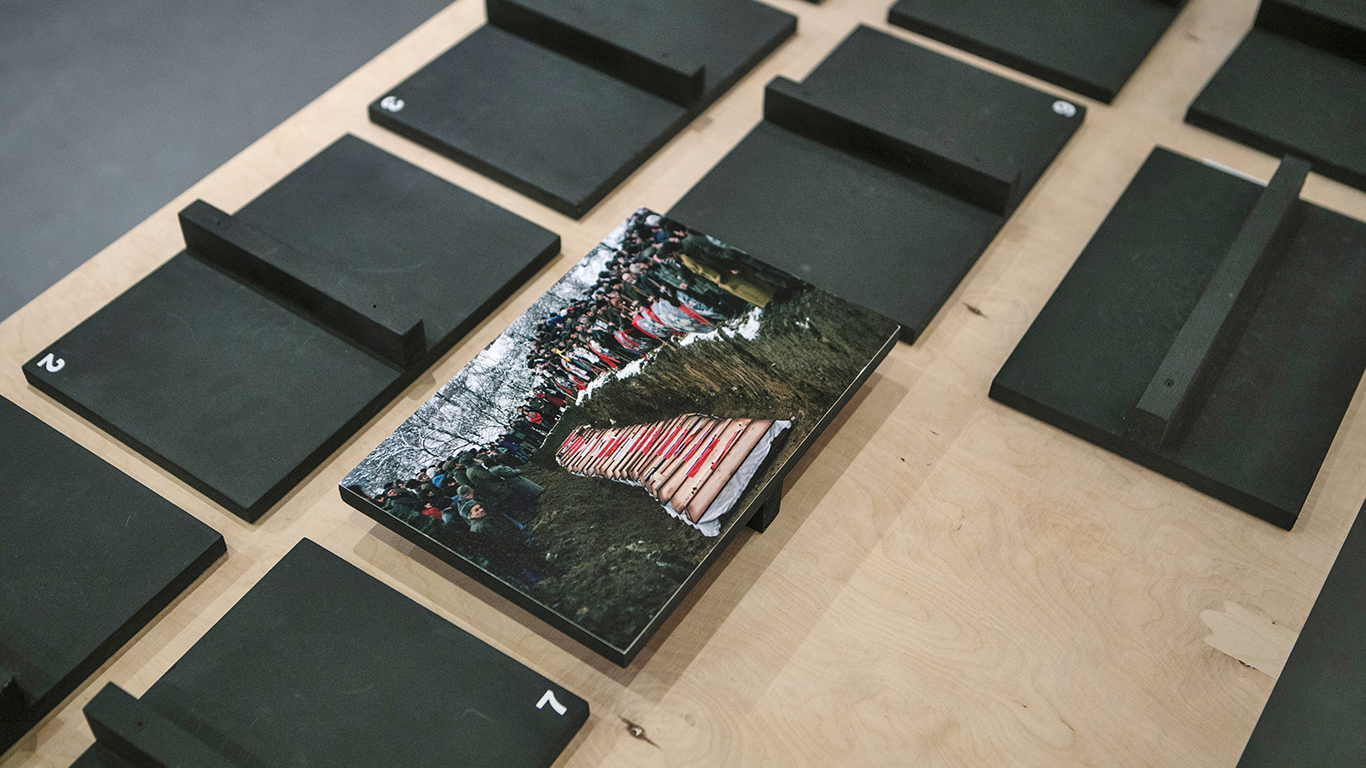
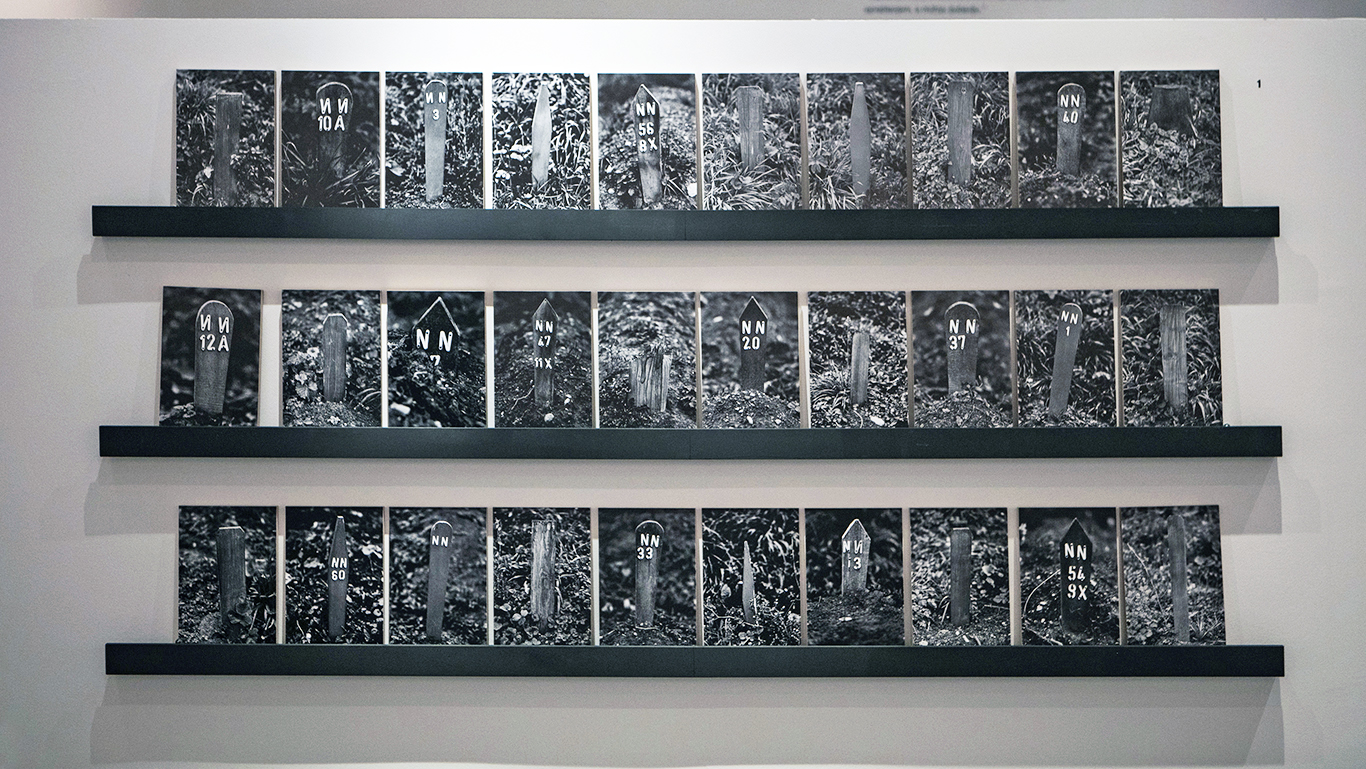
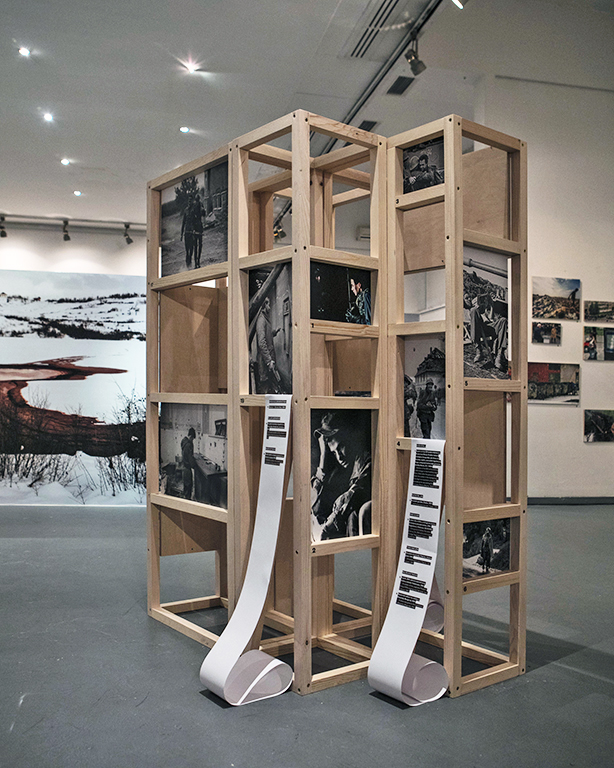
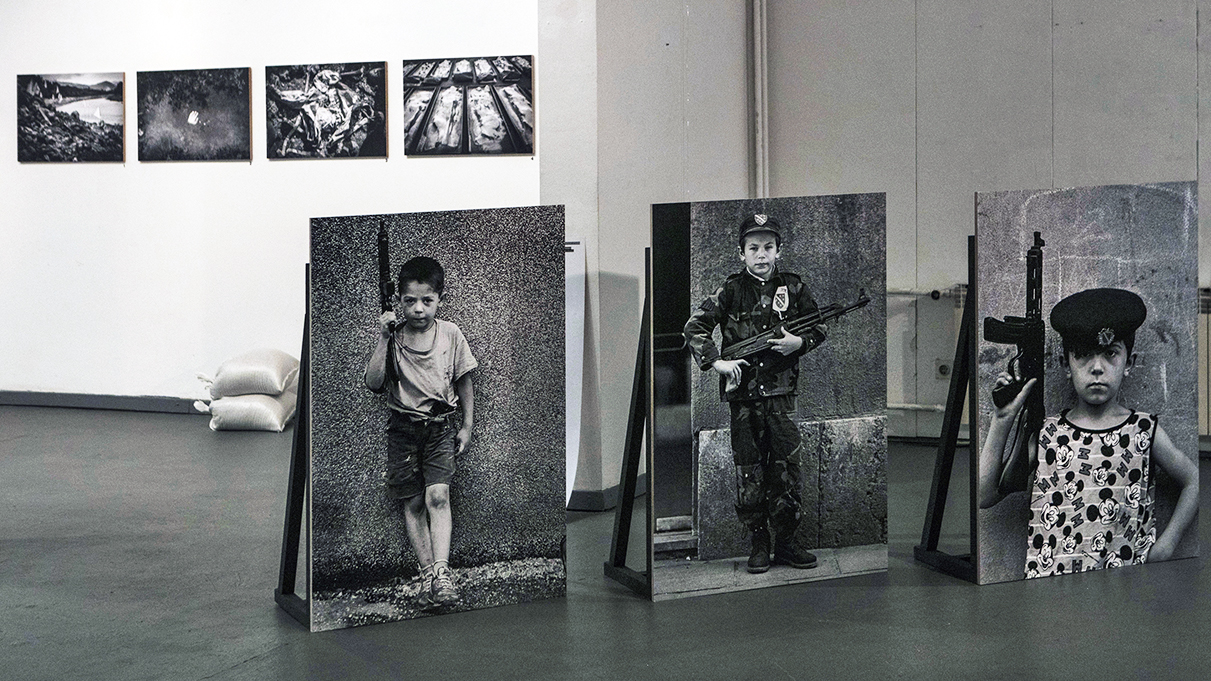
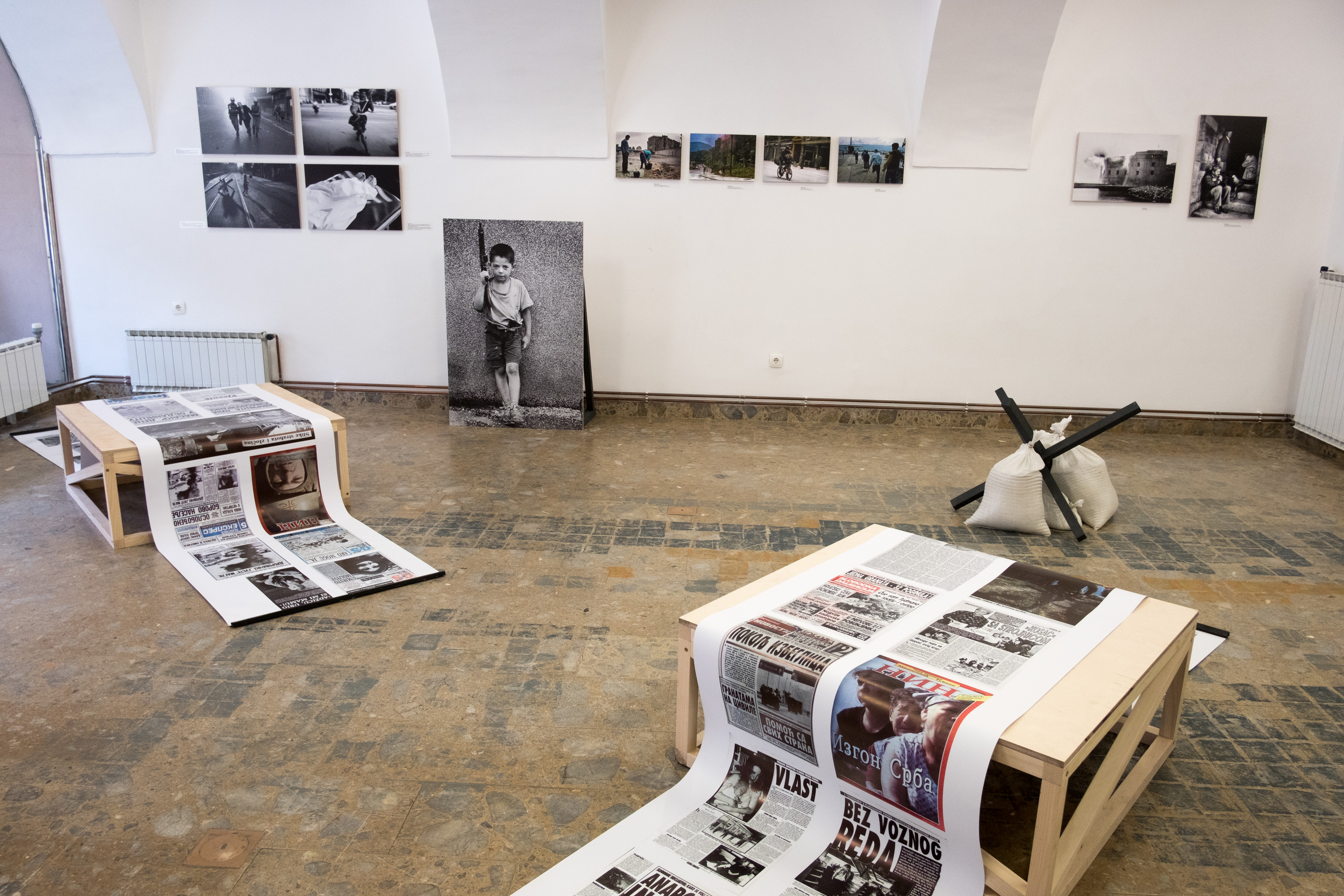
LESSONS FROM ‘91 / LEKCIJE IZ ‘91
Exhibiting authors:
Darko Bandić, Nina Berman, Matko Biljak, Renato Branđolica, Miloš Cvetković, Tom Dubravec, Željko Gašparović, Zijah Gafić, Velija Hasanbegović, Toni Hnojčik, Filip Horvat, Romeo Ibrišević, Srđan Ilić, Zoran Jovanović Mačak, Milomir Kovačević, Borut Krajnc, Saša Kralj, Paul Lowe, Anthony Loyd, Partik Macek, Antun Maračić, Simon Norfolk, Nebojša Radosavljević Raus, Željko Sinobad, Tone Stojko, Srđan Sulejmanović, Imre Szabo, Pavo Urban, Davor Višnjić, Božidar Vukičević, Dragoljub Zamurović
Curator: SandraVitaljić
Artistic display: Nina Bačun i Roberta Bratović, OAZA
Production: Organ vida 2016
Zagreb, Gallery Zvonimir, September 14 - 24, 2016
Maribor, Gallery EPEKA, Gallery K18, Photography Museum Maribor, September 26 - October 11, 2016
Belgrade, Museum of Yugoslavia, February 28 - March 26, 2017
Berlin, BOX Freiraum, April 4 - 22, 2017
http://www.lessonsfrom1991.eu/
The exhibition entitled Lessons from ’91 has gathered for the first time in this quantity at one single location photographers from the entire region and a few international guests in order to depict war years in the area of the former Yugoslavia.
Without pretending to be a universal historical depiction of the war or to offer answers to unanswerable questions, the exhibition represents war photographers’ perspective on the reality they witnessed during their visits to the political and real battlegrounds from Slovenia, Croatia, Bosnia and Herzegovina, to Serbia, Kosovo and FYR Macedonia. These photographs played an important role during the war itself, shaping not only the public opinion in all war struck countries, but also the opinion of the international public. Today they are even more important to us as foundations of the collective memory, as sometimes undesirable traces of a bygone, but still very painful history.
The photographer’s gaze is never neutral, although documentary photography tends to be presented as an objective and realistic image of the world, the single possible representation of the given reality. Photographs never possess one single meaning; it is necessary to decode their multiple layers in the light of the circumstances in which they were created, the impression they might have made at the moment of their publication, the photographer’s motivation, worldview and ethics, and finally, considering the present view of depicted events.
Croatian and regional photographers, unlike international photography professionals, most frequently had the possibility to cover the war from only one, respectively “their own” side. In that situation, it is immensely difficult to shut down your own emotions and sense of belonging and patriotism. Although all photographers constantly emphasize the fact that they were doing their job professionally and objectively, the media were often subjecting the photographs to their own political agendas and placing them in appropriate contexts according to contemporary political needs; applying the same principle today on the occasion of important anniversaries.
This exhibition presents photographs created on all conflicting sides, originally captioned by their authors, without the intention of using them as a means for any particular purpose. To this day, all these photographs carry a strong emotional charge, and their authors return to them with torment, reliving their own war nightmares.
Politics defines what we should remember and what we should forget so the aim of the project is to open space for a different culture of memory, the one that is not exclusive and national, but includes all the events and victims no matter from which conflicted side they come. By confronting photographs taken during the war on all sides we strive to avoid single national perspective and open dialogue about the events.
The exhibition is part of a larger project of the association Društvo za evropsko zavest from Maribor, whose partners are Foto Klub Maribor, the International Photography Festival Organ Vida, and the Photo Association of Serbia. The project is supported by the EU fund Europe for Citizens.